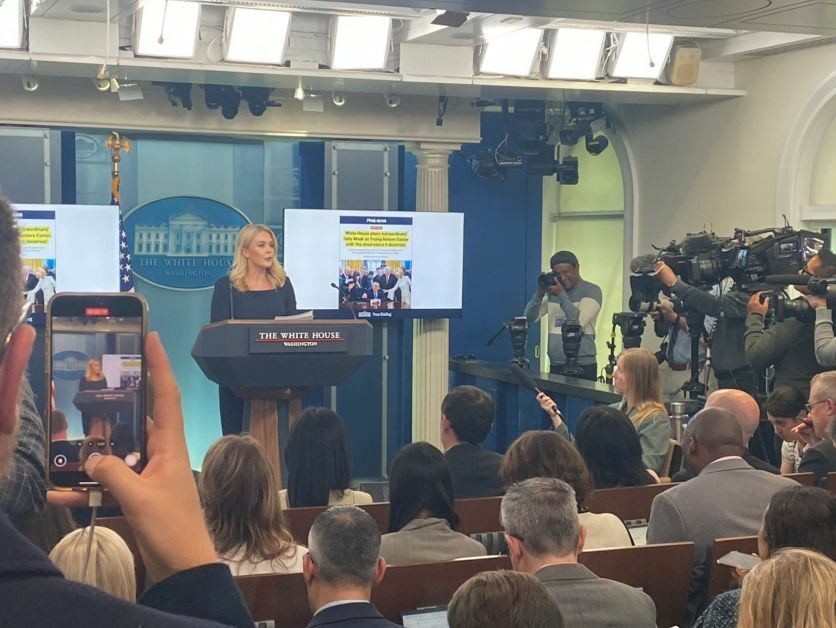Key Takeaways
- The White House downplays findings of erroneous citations in the Make America Healthy Again Commission report.
- Former agricultural secretaries express concern over the division of the farm bill coalition in light of recent SNAP spending cuts.
- USDA cancels substantial funding for a human avian flu vaccine project amid uncertainty about mRNA technology.
White House Responds to MAHA Report Issues
The White House is minimizing concerns regarding a recent report from the Make America Healthy Again (MAHA) Commission, which identified significant citation issues within the document. According to a report by NOTUS, at least seven sources cited in the MAHA report were fabricated, and numerous other citations featured inaccuracies, including incorrect authors and broken links. Some studies were also misrepresented. Press Secretary Karoline Leavitt acknowledged these citation problems during a press briefing but insisted they do not undermine the report’s essential findings.
Calley Means, a special adviser and prominent figure in the MAHA movement, echoed Leavitt’s sentiments. On social media platform X, he stated that any formatting errors had been rectified and reassured that the original data and conclusions of the report remain sound. Means criticized critics for avoiding substantive engagement with the report’s findings.
One noteworthy citation in the report references an estimate from the Foundation for Government Accountability regarding anticipated SNAP (Supplemental Nutrition Assistance Program) spending on sugar-sweetened beverages in fiscal year 2025. The FGA has historically advocated for reducing SNAP and Medicaid funding at the state level, reportedly supporting measures to limit specific purchases under SNAP. The MAHA report claims that SNAP is expected to spend nearly twice as much on ultra-processed foods and sugary drinks ($21 billion) compared to fruits and vegetables ($11 billion) in FY2025, as calculated from USDA data.
The MAHA report also incorporates older USDA analysis from 2016 and 2011 purchasing data, noting that soft drinks constituted about 5.44% of expenditures among SNAP households. However, the USDA acknowledged limitations in isolating purchases made with SNAP EBT cards from those made with other payment methods.
Concerns Over Farm Bill Coalition Dynamics
In related developments, former agricultural secretaries from the Clinton and Bush administrations, Dan Glickman and Mike Johanns, expressed alarm over the fragmentation of the historic rural-urban farm bill coalition prior to Congressional reconciliation votes. They emphasized that the coalition had disintegrated long before the current discussion, which raises doubts about the possibility of passing another comprehensive farm bill.
Glickman noted the reconciliation bill has incorporated many farm bill elements, potentially complicating future negotiations. As Congress deliberates on the reconciliation process, he predicts the Senate may provide a less favorable outcome for commodity spending while curtailing cuts to the nutrition program, which he described as “fraying.”
USDA and Trade Updates
In trade news, the Trump administration received a favorable court ruling allowing its “Liberation Day” tariffs to persist despite ongoing legal challenges. A Federal Circuit Court decision temporarily stayed an earlier ruling from the U.S. Court of International Trade, which questioned Trump’s legal authority to impose the tariffs under the International Emergency Economic Powers Act. The ultimate resolution may rest with the Supreme Court.
On the agricultural front, the USDA missed its scheduled ag trade outlook release, which was still undergoing “final review.” Earlier in February, the department projected a significant agricultural trade deficit of $49 billion for FY2025.
Additionally, the USDA announced a release of $1 billion in Emergency Livestock Relief Program payments for producers affected by drought and wildfires. Payments will cover 35% of expected costs, with further announcements expected regarding assistance for other losses.
Cancellation of Avian Flu Vaccine Funding
The Department of Health and Human Services has withdrawn $766 million in contracts for Moderna’s human avian flu vaccine development. This decision followed promising trial results but raises concerns about the future of the vaccine amid scrutiny of mRNA technology. Moderna’s CEO noted the uncertainty added by this funding cancellation yet emphasized the positive immune response observed in clinical trials.
In summary, critical issues in public health, agriculture, and trade are unfolding, spotlighting the interplay between policy decisions and their socioeconomic impacts.
The content above is a summary. For more details, see the source article.















